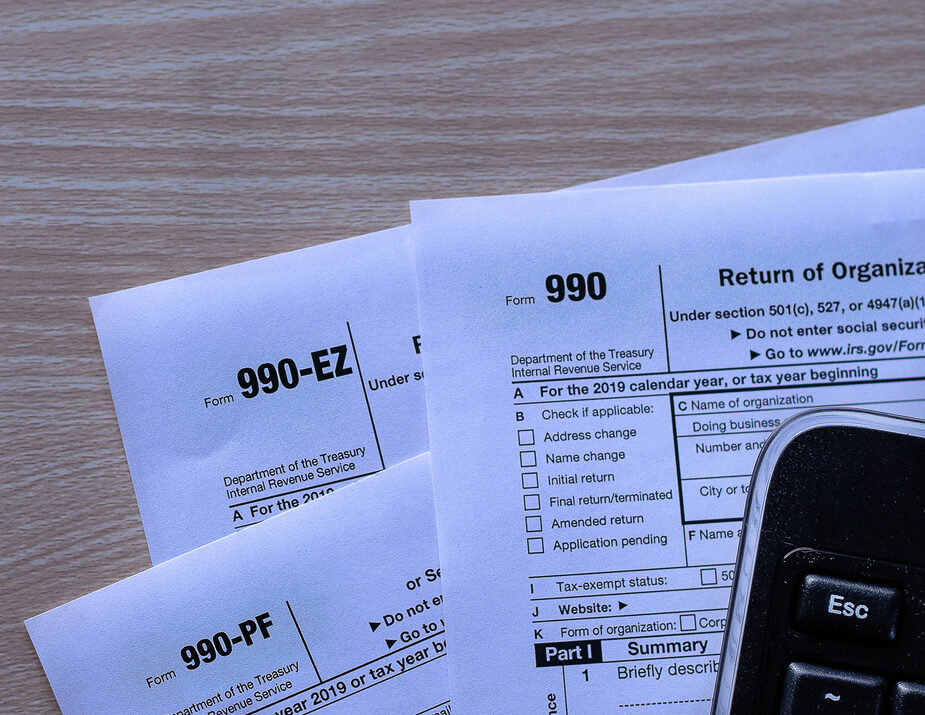Greetings to the dedicated community of nonprofit leaders and financial stewards! In today’s blog, we embark on a crucial journey into the world of tax compliance for nonprofits. As a CPA specializing in nonprofit financial management, I understand the challenges you face, and I’m here to shed light on the key elements every organization should be well-acquainted with to navigate the tax landscape successfully.
The Foundation: Understanding Nonprofit Tax Exemption
Tax exemption is a cornerstone benefit for nonprofits, offering relief from federal income taxes. To secure and maintain this status, organizations must align with specific IRS criteria. These criteria typically revolve around the nonprofit’s purpose, structure, and activities. Ensuring a continuous alignment with these criteria is crucial for preserving your tax-exempt status.
Tax exemption is not a one-time achievement but an ongoing commitment. Regularly review the IRS guidelines to stay informed about any changes that may impact your organization. A proactive approach to compliance not only safeguards your tax-exempt status but also strengthens your credibility with donors and stakeholders.
Filling in the Narrative: Navigating the Form 990
The Form 990 is more than just a tax document; it’s an opportunity to tell your nonprofit’s story. This comprehensive form provides a snapshot of your organization’s financial health, activities, and governance. Beyond the numerical sections, pay attention to the narrative areas where you can articulate your mission, accomplishments, and future plans.
Leverage Form 990 as a tool for transparency and communication. A well-crafted narrative enhances your organization’s credibility, building trust among donors, stakeholders, and the public. Understanding the narrative power of Form 990 allows you to showcase your nonprofit’s impact beyond the numbers.
Record-Keeping Mastery: A Strategic Imperative
Meticulous record-keeping is not just a compliance necessity; it’s a strategic imperative for nonprofit success. Beyond meeting regulatory requirements, a robust record-keeping system serves as a valuable tool for financial management. Detailed records enable you to identify trends, evaluate the effectiveness of programs, and make data-driven decisions.
Ensure your organization has a systematic approach to record-keeping, covering everything from donation receipts to expense documentation. This not only facilitates compliance but also positions your nonprofit for financial resilience and sustainability.
Navigating the Unseen: Unrelated Business Income Tax (UBIT)
While nonprofits enjoy the privilege of federal income tax exemption, there exists a nuanced area known as Unrelated Business Income Tax (UBIT). This aspect of tax law comes into play when nonprofits engage in activities that generate income but are considered unrelated to their tax-exempt purpose.
Understanding UBIT: A Delicate Balance
The concept of UBIT revolves around the notion that while nonprofits are exempt from paying taxes on income generated from their core mission-related activities, income generated from unrelated activities may be subject to taxation. This includes revenue streams such as advertising, sponsorships, or commercial ventures that, while providing valuable funds, might not align directly with the organization’s primary charitable purpose.
Identifying UBIT Triggers
Recognizing activities that trigger UBIT is essential to navigate this complex landscape successfully. Nonprofits must be vigilant in distinguishing between income directly related to their mission and income derived from ventures that might be deemed commercial or business-like. It’s a delicate balance that requires careful scrutiny of each revenue stream to ensure compliance with UBIT regulations.
Seeking Professional Guidance: A Prudent Approach
Due to the intricacies of UBIT, seeking professional guidance becomes particularly prudent. A CPA with expertise in nonprofit taxation can help assess the activities that may trigger UBIT, strategize ways to minimize tax liabilities, and ensure accurate reporting on tax returns. This proactive approach not only helps in compliance but also allows nonprofits to engage in revenue-generating activities strategically.
Strategic Mitigation of UBIT: Planning for Financial Success
Mitigating the impact of UBIT involves strategic planning. Nonprofits can explore options to structure and manage unrelated business activities in a way that minimizes tax exposure. This might include segregating and clearly delineating unrelated business activities, exploring exceptions and exclusions provided in the tax code, or considering alternative structures that align with tax regulations.
Educating Stakeholders: Transparency and Compliance
Transparent communication with stakeholders is paramount. Donors, board members, and the public should be aware of the nonprofit’s diversified revenue streams and how UBIT might impact the organization’s financial picture. Openness about the strategies in place to comply with UBIT regulations enhances trust and reinforces the nonprofit’s commitment to responsibility.
Continuous Monitoring: Staying Ahead of UBIT Compliance
The tax landscape evolves, and so do the regulations surrounding UBIT. Continuous monitoring and regular reviews of activities ensure that nonprofits stay ahead of any changes that might impact UBIT compliance. Proactive assessment and adjustment of strategies in response to evolving tax laws help organizations maintain financial resilience and sustainability.
State-Specific Compliance: The Multifaceted Challenge
Compliance isn’t limited to federal regulations; nonprofits must also navigate state-specific requirements. Each state has its own set of rules governing tax exemption, reporting, and compliance. Nonprofits operating in multiple states face a complex web of obligations.
Establish a systematic approach to monitor changes in state regulations, ensuring timely compliance. Seeking professional advice with expertise in state-specific tax laws can guide your organization through this multifaceted landscape, avoiding pitfalls and potential penalties.
Board Empowerment: Financial Responsibility Beyond the Ledger
Your board of directors plays a pivotal role in ensuring tax compliance. Educate board members on their financial responsibilities, emphasizing the importance of reviewing financial statements, understanding Form 990, and actively participating in financial decision-making.
A financially literate and engaged board strengthens your nonprofit’s transparency and compliance efforts. Regular training sessions or workshops can keep board members informed about industry best practices and their role in maintaining the organization’s financial integrity.
Continuous Learning: A Pillar of Financial Resilience
The tax landscape is dynamic, with regulations evolving over time. Continuous learning is not just encouraged; it’s essential. Encourage your finance team and board members to attend seminars, webinars, and workshops to stay informed about emerging trends, regulatory changes, and best practices.
A commitment to ongoing education positions your nonprofit to navigate future challenges with agility and foresight. Embrace learning as a proactive strategy to ensure your organization remains resilient and compliant in the ever-changing tax environment.
Call to Action: Propel Your Nonprofit’s Financial Excellence
Ready to propel your nonprofit towards financial excellence? Dive deeper into the intricacies of nonprofit tax compliance with my free eBook, “7 Mistakes to Avoid for Nonprofit Tax Success.”
📚 Download Your Free eBook Now: 7 Mistakes to Avoid
This eBook serves as a comprehensive resource, offering nuanced insights into common pitfalls and actionable strategies to fortify your nonprofit’s financial foundation. Let’s embark together on a journey towards sustained financial success and lasting impact.
Feel free to connect if you have questions or need personalized guidance on your nonprofit’s tax compliance journey.
Wishing you financial prosperity and continued impact!
Best Regards,
LaMichelle Hecht, CPA




